Leaning on software to simplify day-to-day tasks has become an intrinsic part of the modern working landscape. Whatever the sector or industry, our reliance on technology has never been more apparent – with the majority of businesses trusting software to take care of every part of their operation.
And this got us thinking: out of all the software, platforms and tools out there, which are the most popular and well-used? And what do our software preferences tell us about modern working practices in this new age of flexible, remote working?
To find out, we gathered Google search data to see what the most popular workplace software tools were, before surveying 1,000 workers from different sectors to ask their opinions on their current software setup.
Let’s take a look at what insights our research turned up.
Key Findings
From the survey responses we received, one thing became immediately apparent: many employees working remotely don’t feel they have the adequate tools and software to complete their tasks to the usual standard.
Here are some of the key things to note from our survey data:
- Employees are struggling to work remotely with communication tools
- Half say there is a knowledge gap, and that they haven’t received enough training in key areas
- Knowledge gaps and insufficient software provision have led to a perceived lack of engagement and productivity
- Poor quality systems and technical issues are the biggest setbacks companies need to resolve, while employees are also continually struggling with internet connections
- Most feel they have the tools to do their job, but many say that improved functionality would make work easier, particularly in a remote setting
The Most Popular Tools and Software in the UK
So, of all the tools and software we use every day, which were the most popular and highly-coveted? To find out, we collected Google search data, shedding light on the software that garners most interest online.
Take a look at our visual guide below to see the tools which UK workers rely on the most for file sharing, conferencing, project management, and communication.
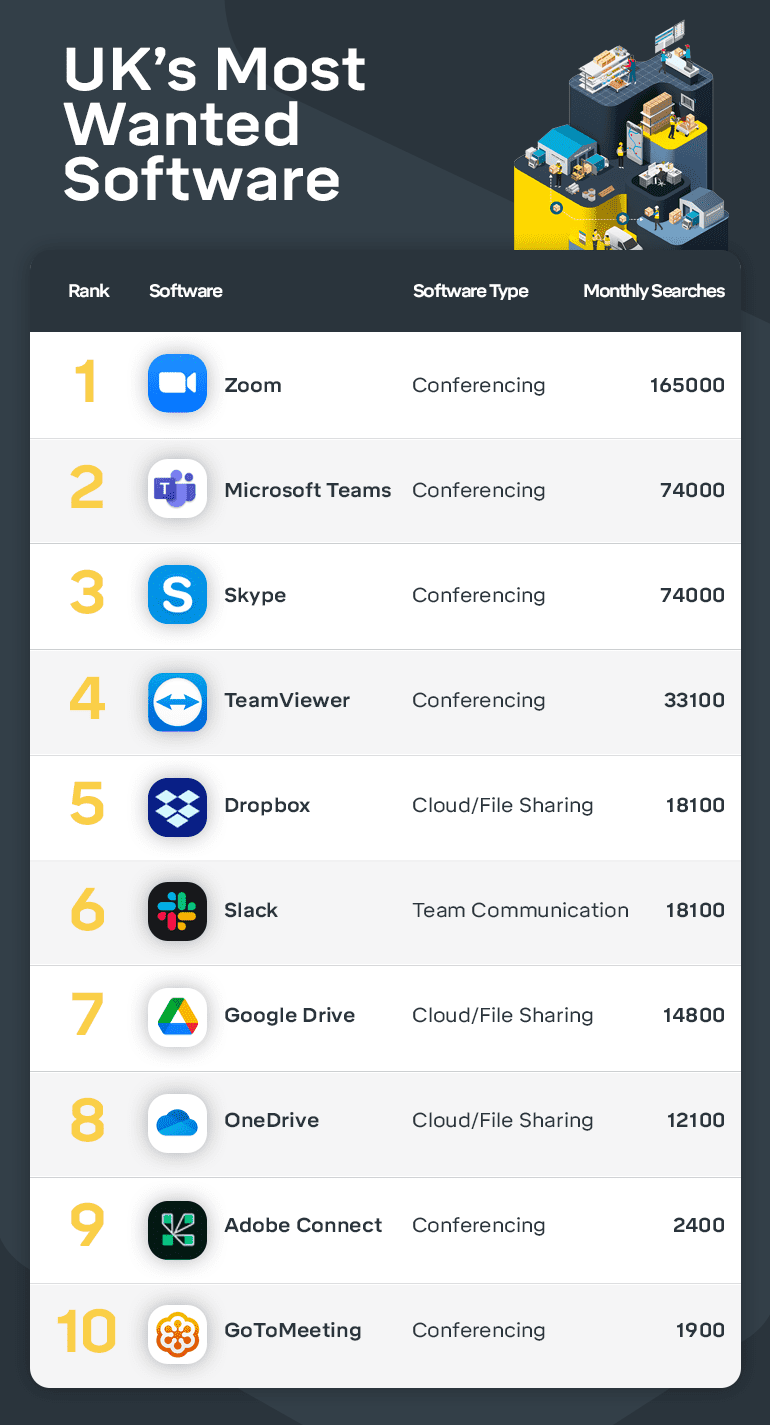
Do UK Workers Have the Tools and Software They Need?
As part of our survey, we asked a series of ‘yes or no’ questions to find out if people are happy with the tools, applications and software their employer has equipped them with. We wanted to find out if UK workers feel that they’re adequately supported from a technological standpoint, and that their employer recognises the value of providing the right software for their people.
See the most common responses in our visual bar chart below.
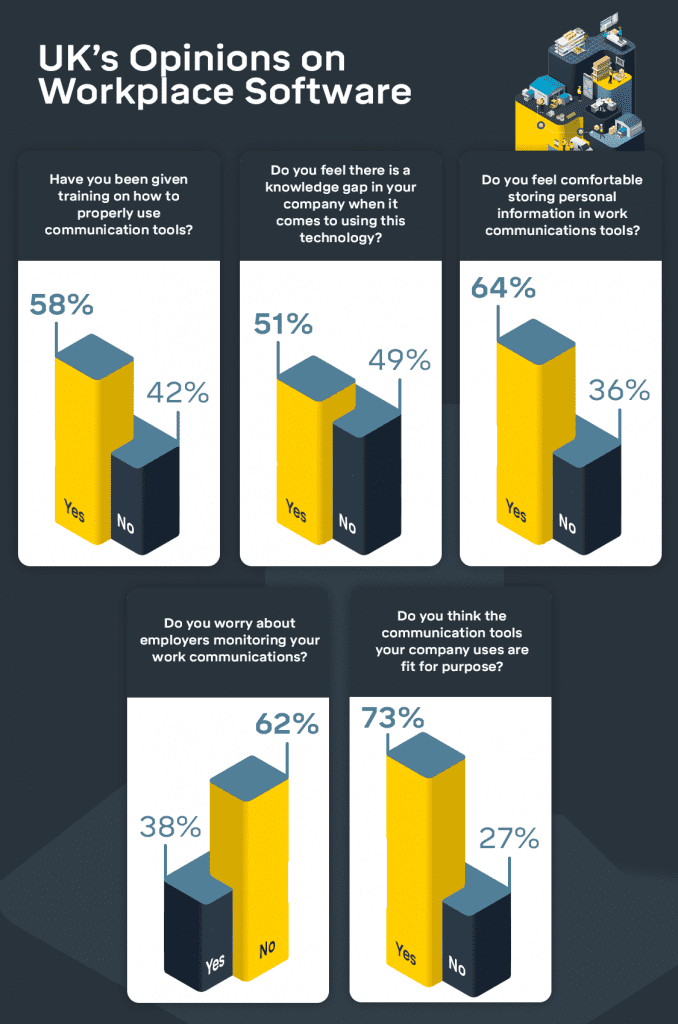
What Tools Do People Rely on Most for Remote Working?
Given that a large proportion of the UK workforce has been instructed to work from home throughout the COVID-19 pandemic, how has this impacted the types of tools and software that people use as part of their day-to-day work?
To find out, we put the question to our survey respondents, quizzing them on the types of tools they rely on most when working away from the office. Take a look at our pie chart below to see their responses.
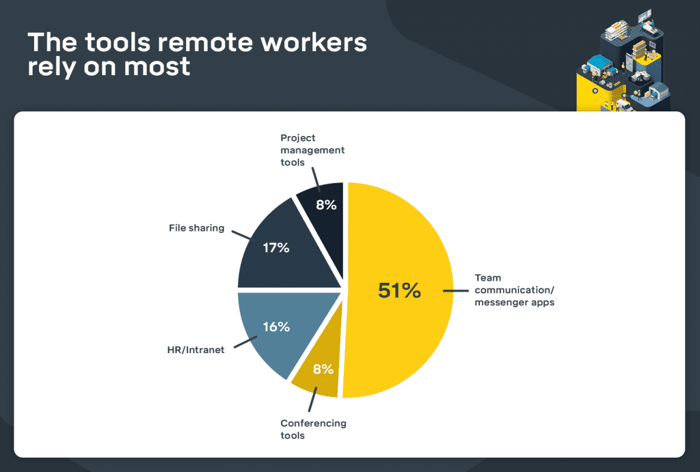
How Has Communication Changed Since WFH?
Ensuring efficient and simplified communications for remote workers has been a sticking point for many businesses. Some have struggled to strike a balance between bolstering engagement while ensuring remote teams have the right platforms through which to collaborate.
But how about individual attitudes to remote comms? Do people engage with colleagues in the same way in a remote setting? And just how often do they check communication platforms throughout the day?
Let’s take a look.
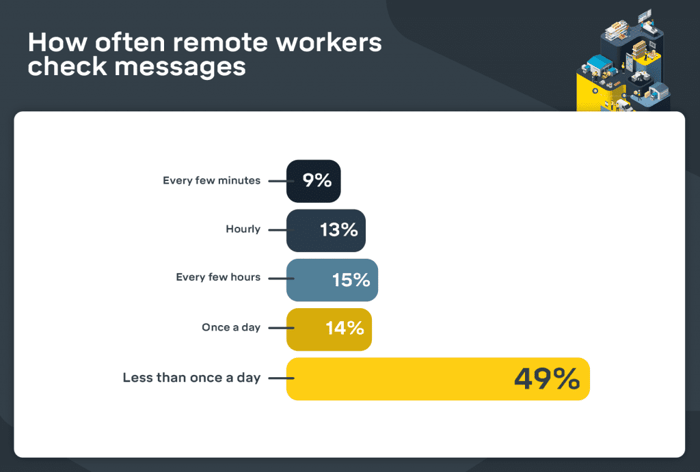
Which Are the Most Popular Platforms for Remote Communication?
Adequate communication can be challenging in a remote setting. And, as highlighted in the chart above, many workers seem disengaged from their colleagues when WFH, checking communication platforms only briefly throughout the day.
But of all the avenues of communication open to remote workers, which are the most utilised and relied upon? Our visual chart below highlights the tools and platforms people prefer to use, with team communication and instant messaging apps coming out on top.
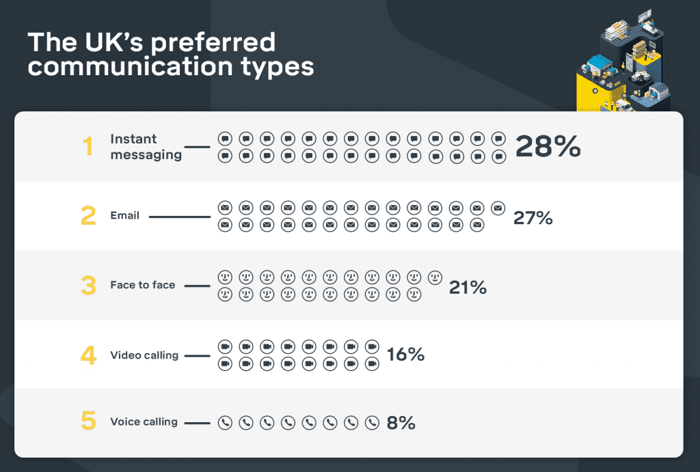
Communicating effectively with your staff and customers has never before been so important and our research solidly supports this statement. However, key to facilitating effective collaboration is your ERP software. Unifying all your business data into one integrated system improves transparent communication company-wide. It ensures those Zooms, Teams, Skype calls etc. are centered around everyone’s ‘one version of the truth’ for your business which should be found in your ERP solution.
A modern, fully integrated ERP solution also keeps employees focused on what needs immediate action, aiding real-time, data-driven decision-making; regardless of whether they are in the office or WFH. And it’s these capabilities that directly impact how well you serve your customers.
If you’re looking for more from Intact, be sure to check out our blog for more news, guides and features. If you’d like to learn about our future-fit ERP software solutions, visit the homepage.




